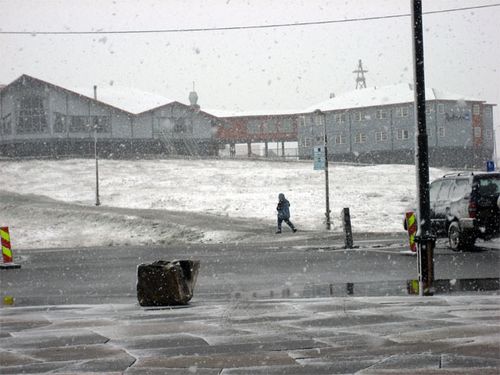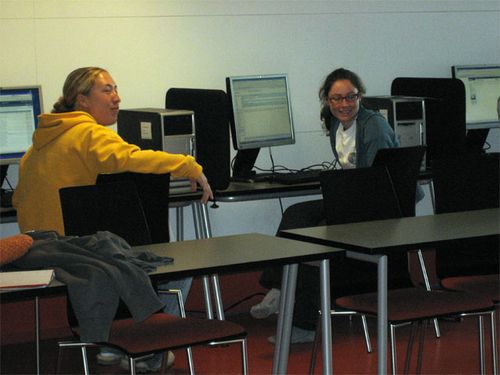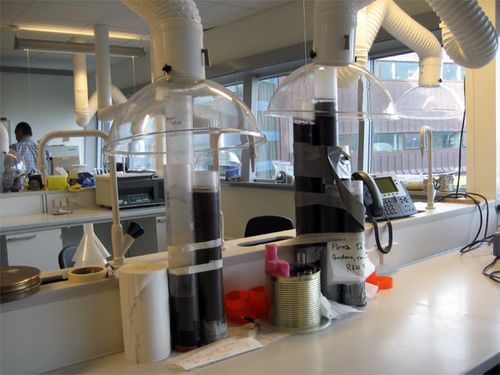 We were treated to a couple of brief snowstorms, although the snow didn't last on the ground for too long.
We were treated to a couple of brief snowstorms, although the snow didn't last on the ground for too long.
The process of science begins with the creation of a focused question or questions about a phenomenon or observation, and these questions are the basis for the development of a study. All the students here had research questions that provided them with structure of their projects. At this point in the process they have all done most of their background research into what has been done in the past, and they have collected their data or samples using their selected methods. Now the fun begins as they start to put their data to work to determine if in fact they can answer the questions they posed.
 The Svalbard REU students are required to prepare a 15 minute presentation of their field study.
The Svalbard REU students are required to prepare a 15 minute presentation of their field study.
Back here in Longyearbyen the students are working on their presentations for Friday's symposia where they are all expected to give a 15 minute talk about their projects. This will give them some practice with scientific practices since part of the review process of scientific research is to present and defend your research in front of your peers. Their powerpoint presentations must provide the scope of their projects, the research they have done thus far, an overview of their data and samples, maps of their study locations, what they propose to do over the next year when they get back to their colleges and universities, and how what they are doing fits in with other research in the Arctic in general and in the Linne Valley more specifically. All the students have been invited to a scientific meeting on research in the Arctic which will take place next spring, and at the meeting they will have the opportunity to present their completed projects to a larger audience. Usually at these meetings 15 minute presentations are given or posters are presented in a poster session. For those Svalbard REU students who intend on a career in scientific research, these presentations will be terrific practice for future presentations. This may appear to be a lot of work, but to a scientist, the process is extremely rewarding.
 The sediment cores are sitting under drying hoods in order to dry them out some more before taking them back to the US.
The sediment cores are sitting under drying hoods in order to dry them out some more before taking them back to the US.
Question of the day: What are some of the things you've done that were challenging and difficult although very rewarding once they were completed?

